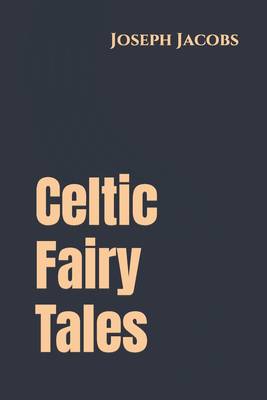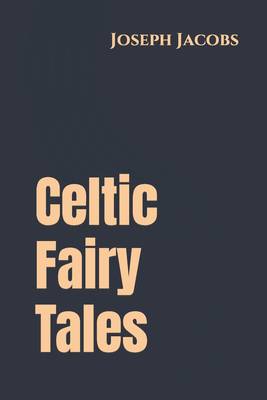
- Afhalen na 1 uur in een winkel met voorraad
- Gratis thuislevering in België vanaf € 30
- Ruim aanbod met 7 miljoen producten
- Afhalen na 1 uur in een winkel met voorraad
- Gratis thuislevering in België vanaf € 30
- Ruim aanbod met 7 miljoen producten
Zoeken
€ 17,95
+ 35 punten
Uitvoering
Omschrijving
Last year, in giving the young ones a volume of English Fairy Tales, my difficulty was one of collection. This time, in offering them specimens of the rich folk-fancy of the Celts of these islands, my trouble has rather been one of selection. Ireland began to collect her folk-tales almost as early as any country in Europe, and Croker has found a whole school of successors in Carleton, Griffin, Kennedy, Curtin, and Douglas Hyde. Scotland had the great name of Campbell, and has still efficient followers in MacDougall, MacInnes, Carmichael, Macleod, and Campbell of Tiree. Gallant little Wales has no name to rank alongside these; in this department the Cymru have shown less vigour than the Gaedhel. Perhaps the Eisteddfod, by offering prizes for the collection of Welsh folk-tales, may remove this inferiority. Meanwhile Wales must be content to be somewhat scantily represented among the Fairy Tales of the Celts, while the extinct Cornish tongue has only contributed one tale. In making my selection I have chiefly tried to make the Stories characteristic. It would have been easy, especially from Kennedy, to have made up a volume entirely filled with "Grimm's Goblins" a' la Celtique. But one can have too much even of that very good thing, and I have therefore avoided as far as possible the more familiar "formulae" of folk-tale literature. To do this I had to withdraw from the English-speaking Pale both in Scotland and Ireland, and I laid down the rule to include only tales that have been taken down from Celtic peasants ignorant of English. Having laid down the rule, I immediately proceeded to break it. The success of a fairy book, I am convinced, depends on the due admixture of the comic and the romantic: Grimm and Asbjornsen knew this secret, and they alone. But the Celtic peasant who speaks Gaelic takes the pleasure of telling tales somewhat sadly: so far as he has been printed and translated, I found him, to my surprise, conspicuously lacking in humour. For the comic relief of this volume I have therefore had to turn mainly to the Irish peasant of the Pale; and what richer source could I draw from? For the more romantic tales I have depended on the Gaelic, and, as I know about as much of Gaelic as an Irish Nationalist M.P., I have had to depend on translators. But I have felt myself more at liberty than the translators themselves, who have generally been overliteral, in changing, excising, or modifying the original. I have even gone further. In order that the tales should be characteristically Celtic, I have paid more particular attention to tales that are to be found on both sides of the North Channel. In retelling them I have had no scruple in interpolating now and then a Scotch incident into an Irish variant of the same story, or vice versa. Where the translators appealed to English folklorists and scholars, I am trying to attract English children. They translated; I endeavoured to transfer. In short, I have tried to put myself into the position of an ollamh or sheenachie familiar with both forms of Gaelic, and anxious to put his stories in the best way to attract English children. I trust I shall be forgiven by Celtic scholars for the changes I have had to make to effect this end. The stories collected in this volume are longer and more detailed than the English ones I brought together last Christmas. The romantic ones are certainly more romantic, and the comic ones perhaps more comic, though there may be room for a difference of opinion on this latter point. This superiority of the Celtic folk-tales is due as much to the conditions under which they have been collected, as to any innate superiority of the folk-imagination. The folk-tale in England is in the last stages of exhaustion. The Celtic folk-tales have been collected while the practice of story-telling is still in full vigour, though there are every signs that its term of life is already numbered.
Specificaties
Betrokkenen
- Auteur(s):
- Uitgeverij:
Inhoud
- Aantal bladzijden:
- 206
- Taal:
- Engels
- Reeks:
- Reeksnummer:
- nr. 85
Eigenschappen
- Productcode (EAN):
- 9798614216313
- Verschijningsdatum:
- 15/02/2020
- Uitvoering:
- Paperback
- Formaat:
- Trade paperback (VS)
- Afmetingen:
- 152 mm x 229 mm
- Gewicht:
- 308 g

Alleen bij Standaard Boekhandel
+ 35 punten op je klantenkaart van Standaard Boekhandel
Beoordelingen
We publiceren alleen reviews die voldoen aan de voorwaarden voor reviews. Bekijk onze voorwaarden voor reviews.











